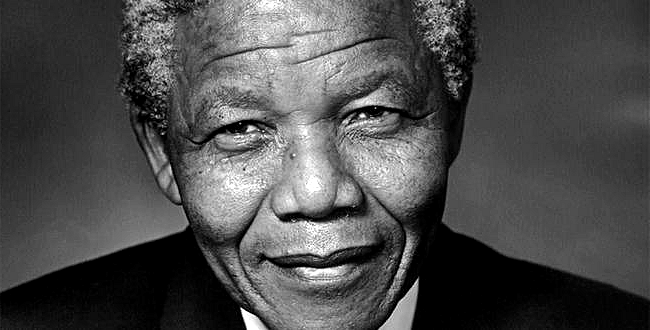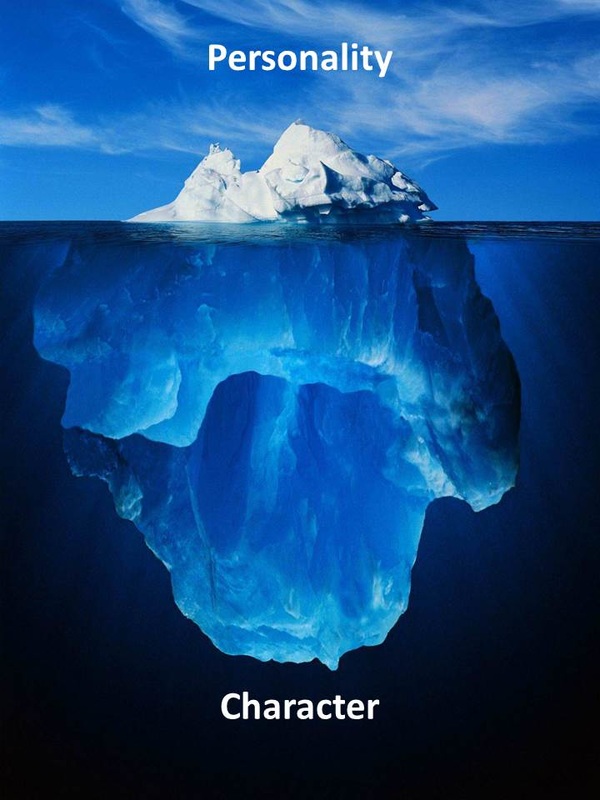|
I originally posted this article on Pulse August 30th 2015. After the acquisition of LinkedIn by Mircosoft I decided to move my articles into my personal blog. The article is exactly the same as last year, so please feel free to share and comment on it here. If we think about people with an admirable and strong character, leaders that defend the fundamental principles and values they believe in and are willing to die for, people that were able to pardon their enemies and even collaborate with them, one person comes to my mind: Nelson Mandela - Madiba (https://www.nelsonmandela.org/landing/life-and-times). Nelson Mandela was an admirable, emphatic and outstanding person and friend of the ones that were lucky enough to know him in person. So he is for people like me, that want to understand his life and his leadership, his values, habits and character in order to learn and improve for their own lifes. Very much was written about Nelson Mandela's heritage and the lessons he taught us in terms of leadership, true thought leadership. Fortune Insider Network authors Paul J.H. Schoenmaker and Steven Krupp wrote an article 5th of December 2014 on the first anniversary of Madiba's death. [Link to the full article: http://fortune.com/2014/12/05/6-principles-that-made-nelson-mandela-a-renowned-leader] They titled the article "6 principles that made Nelson Mandela a renowned leader" but failed - from my point of view - to clearly highlight the true underlying values and principles that created over decades Madiba's extraordinary and strong leadership. In the article they limit themselves to explain what Mandela did and appeared to be rather than highlighting the values and underlying principles of this exceptional and outstanding leader. They did not explain what he actually was. In the introductory paragraph they state: “He exercised a full range of cognitive, emotional and behavioral abilities to bring about profound change in South Africa. All leaders who aspire to be more strategic can learn from Mandela’s six key behaviors that distinguish him as a true strategic leader.” So they talk about behavioral abilities, behaviors, but not about principles. They then list the following 6 behaviors “principles” that made Madiba from their point of view the renowned leader he was:
Rather than looking at Mandela’s behavior - I call it to look at what Madiba did and how he did it: His personality - I would like to highlight the underlying attributes of Mandelas’ outstanding strong character ethic. Nelson Mandela became the leader he was because he was trustworthy. He earned the trust of millions of black and white South African people due to his character we can describe with the attributes of strongest commitment, responsibility, integrity and fidelity and the determination to give the entire South African people the possibility to live in freedom and peace together. He showed tremendous courage and willpower when he announced in his public speech April 20, 1964, aged 46, from the dock in the Rivonia Trial that he was prepared to die for this cause. He said: “During my lifetime I have dedicated myself to this struggle of the African people. I have fought against white domination, and I have fought against black domination. I have cherished the ideal of a democratic and free society in which all persons live together in harmony and with equal opportunities. It is an ideal which I hope to live for and to achieve. But if needs be, it is an ideal for which I am prepared to die.” He finished the speech with the following paragraph and signed it dated “April 1964”: “The invincibility of our cause and the certainty of our final victory are the impenetrable armour of those who consistently uphold their faith in freedom and justice in spite of political persecution” And it was not strategy or political calculation that 466/64 – Mandiba’s prisoner number when he was sent to Robben Island in June 1964 - could forgive the people that did put him innocent behind bars for more than 25 years. It was strong conviction and part of his principles that hate and revenge would not help to make his dream of a democratic and free South African society come true and that this could only be achieved leaving bitterness and hatred behind. His decisions were also result of his values, ideals, convictions and principles and not simply political cleverness, manipulation or brilliant strategy. Mandela remained solid as rock true to his beliefs and listened to them when he had to make decisions such as in the 1992 Olympics. Mandela ultimately decided to support the mostly white athletes where only eight of the 95-person delegation were black. It was the correct decision he said. I would like to finish with citing 15 quotes of Madiba - the first six illustrated with some of Nelson Mandela's images - that specially impressed me because they reflect the values and character of the exceptional leader he was. 7 - Real leaders must be ready to sacrifice all for the freedom of their people. 8 - Resentment is like drinking poison and then hoping it will kill your enemies. 9 - Education is the most powerful weapon which you can use to change the world. 10 - The brave man is not he who does not feel afraid, but he who conquers that fear. 11 - Do not judge me by my successes, judge me by how many times I fell down and got back up again. 12 - When a man has done what he considers to be his duty to his people and his country, he can rest in peace. 13 - For to be free is not merely to cast off one’s chains, but to live in a way that respects and enhances the freedom of others. 14 - No axe is sharp enough to cut the soul of a sinner who keeps on trying, one armed with the hope that he will rise even in the end. 15 - I am fundamentally an optimist. Whether that comes from nature or nurture, I cannot say. Part of being optimistic is keeping one’s head pointed toward the sun, one’s feet moving forward. There were many dark moments when my faith in humanity was sorely tested, but I would not and could not give myself up to despair. That way lays defeat and death. About the Character Ethic, Personality Ethic and Stephen R. Covey If you are familiar with Stephen R. Covey's Character Ethic, meaning the foundation of his timeless "The 7 habits of highly effective people" school, you may know that he used a great quote to define the difference between the importance and strength of personality (Leaves) versus character (Roots): Covey explained with the iceberg metaphor what the main difference between character and personality is. What you are – your character - is the biggest part which lies invisible under water where the visible smaller part is what you do and appear to be – your personality. I invite you to start today working on the revision and reflection of your own values, principles and the mastery and the shaping of your habits to make sure you build and maintain a strong character. This will enable you to make your best possible decisions responding to the challenges of change you are faced with every day. Like that you will establish the trustworthiness and you will earn the trust of the people, which is finally the way to achieve true and enduring effectiveness in your life. But don't forget: Trustworthiness and trust are built on both character and competency. Have a great day! Authors personal note: I really appreciate that you are reading my post.
I am regularly writing about coaching, mentoring, leadership and technology. Please feel also free to follow TopCoach4You on your favorite Social Network:
Related posts, STILL ON LINKEDIN (will be moved here soon ;)
All the posts I have written on Linkedin can be found here: Andreas Jaffke's posts on Linkedin
0 Comments
Leave a Reply. |
Andreas JaffkeBorn in Germany 1967. Living since 1999 in Spain. Married and father of three. Evangelist of Stephen R. Covey's "The 7 habits of highly effective people". Humble learner who helps others to get the best out of themselves. Archives
June 2017
Categories
All
|



 RSS Feed
RSS Feed
